30 dangers hiding in your home
How to keep your whole family safe
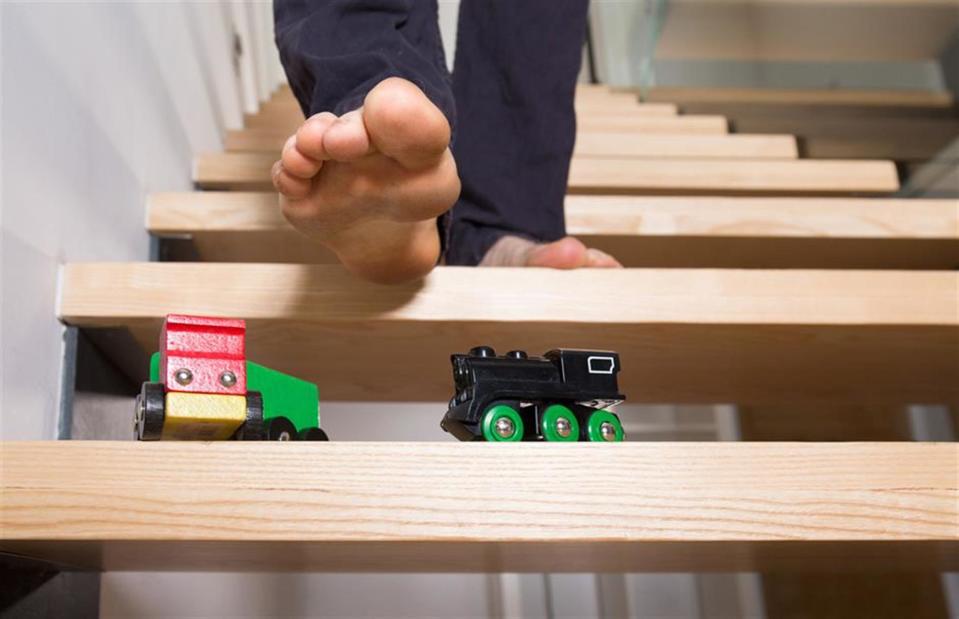
Ground Picture / Shutterstock
According to The Royal Society for the Prevention of Accidents (RoSPA), every year approximately 6,000 citizens across the UK die as a result of accidents in the home, while Safewise estimates that more than 160,000 Americans each year die in similar circumstances. With these figures in mind, we've found thirty familiar causes of accidents in the home – and some ways to avoid them.
Poisoning from black mould
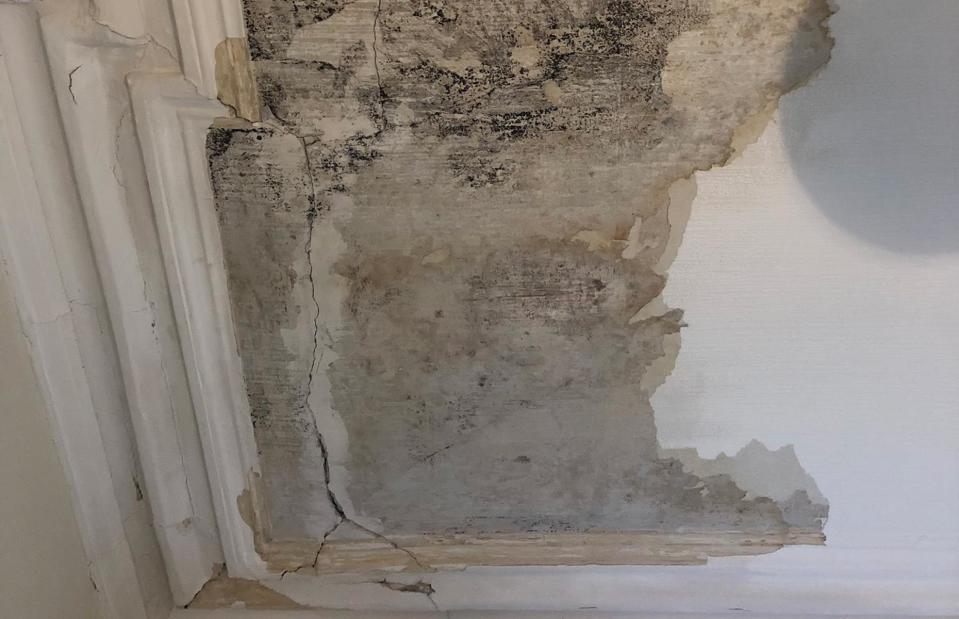
@istreasatuatha / Twitter
Mould can produce allergens and toxic substances, just ask Emma Franklin, who was poisoned by mould just two weeks after moving into her house, developing a chronic cough, muscle spasms, a painful rash and hair loss. "It's been the craziest few years of my life," Emma told Walesonline. "I can't believe a bit of mould made me so unwell. I honestly felt like I was dying." Mould grows as a result of excess moisture, which is usually connected to structral or ventilation problems. Treat mouldy areas with a specialist damp treatment, visit Ronseal's website for full instructions.
Tripping and slipping on rugs
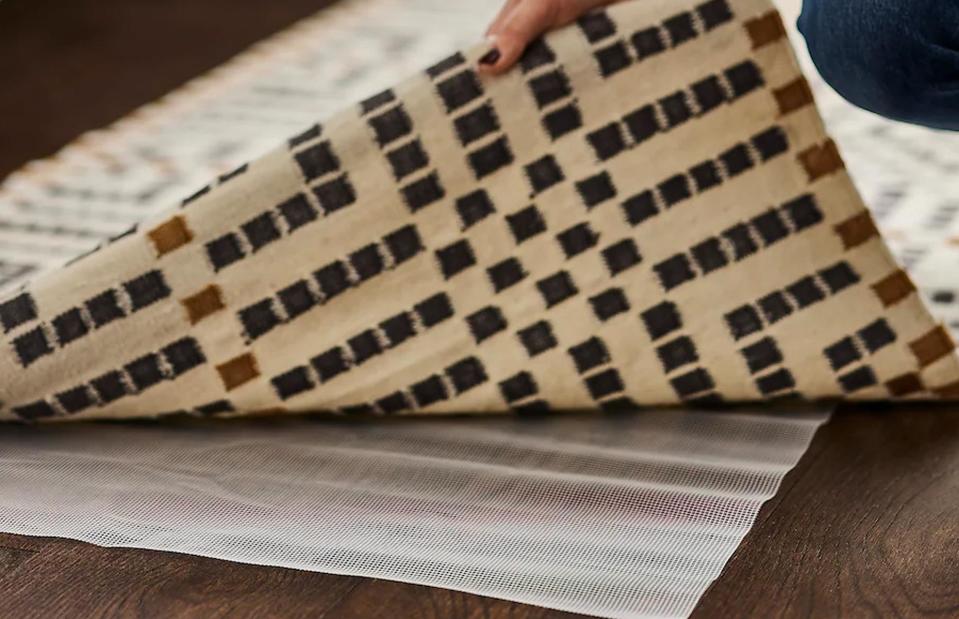
IKEA
The National Library of Medicine in the US estimates that 37,991 adults aged 65 years or older were treated in hospital for falls associated with carpets and rugs. Loose, unsecured rugs and damaged carpets with curled edges are the biggest culprits. It's always best to add a non-slip pad or underlay to rugs and carpets to prevent them from bunching up and sliding around. Rugsandstuff.co.uk encourage using a rug underlay to "keep the rug sitting level and in one position".
Injuries from unsecured bouncy castles
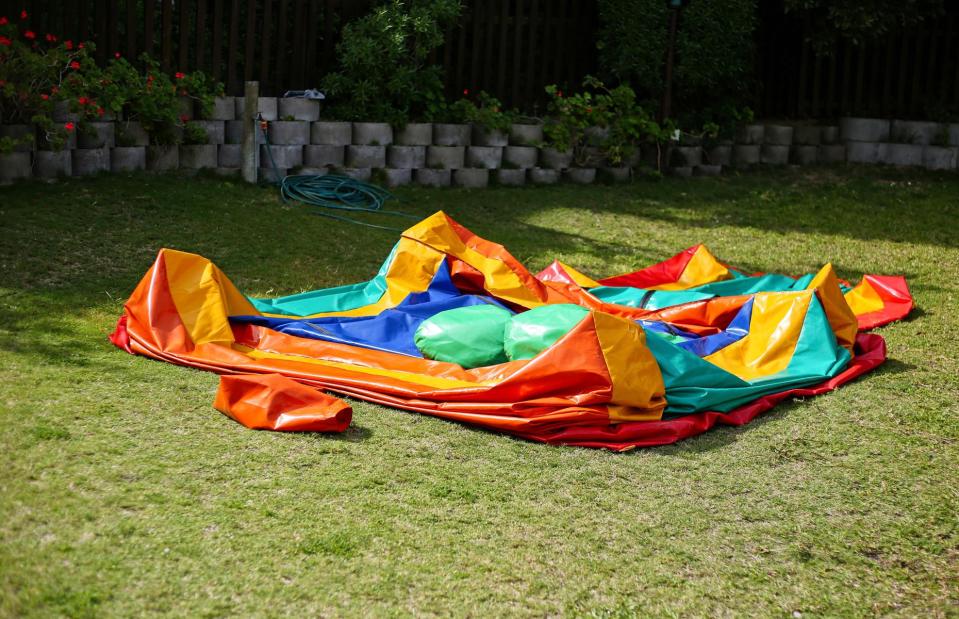
MD_Photography / Shutterstock
You can't go to a children's party these days without seeing a bouncy castle bobbing in the garden. But they can cause serious injury and even death. The BBC reported of six children dying in Australia in 2021 after a bouncy castle was lifted into the air by strong winds, while the Daily Mail reported on a father and 21-month-old son in the UK who barely escaped suffocation after one suddenly deflated. PIPA, an inspection scheme set up by the inflatable play industry to ensure equipment conforms to recognised safety standards, offers instructions on how to safely anchor a bouncy castle.
Laundry tablet burns and poisoning
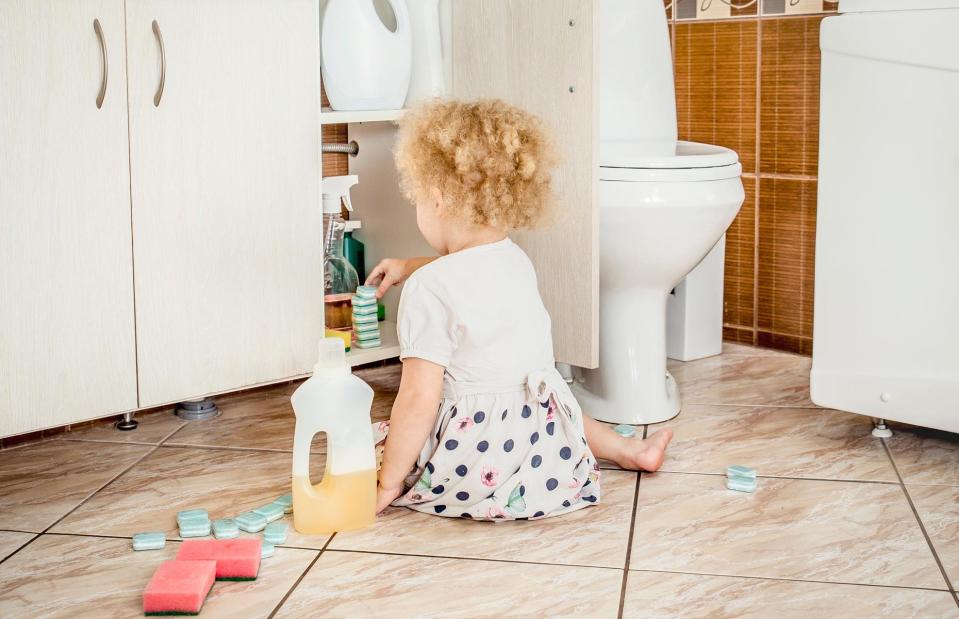
FotoHelin / Shutterstock
Throwing a plastic laundry pod into the washing machine drum is convenient. However, Fabulous Magazine interviewed a mother who said her three-and-a-half-year-old son "suffered the most horrendous burn...after a laundry tablet failed to disperse into the washing machine". Other pod-induced hazards include poisoning and internal damage from digestion. Always ensure your clean laundry is free from detergent residue after washing, and watch Ariel's safety video on storing its pods out of reach from kids in a child-locked pack.
Skin irritation from dirty hot tubs
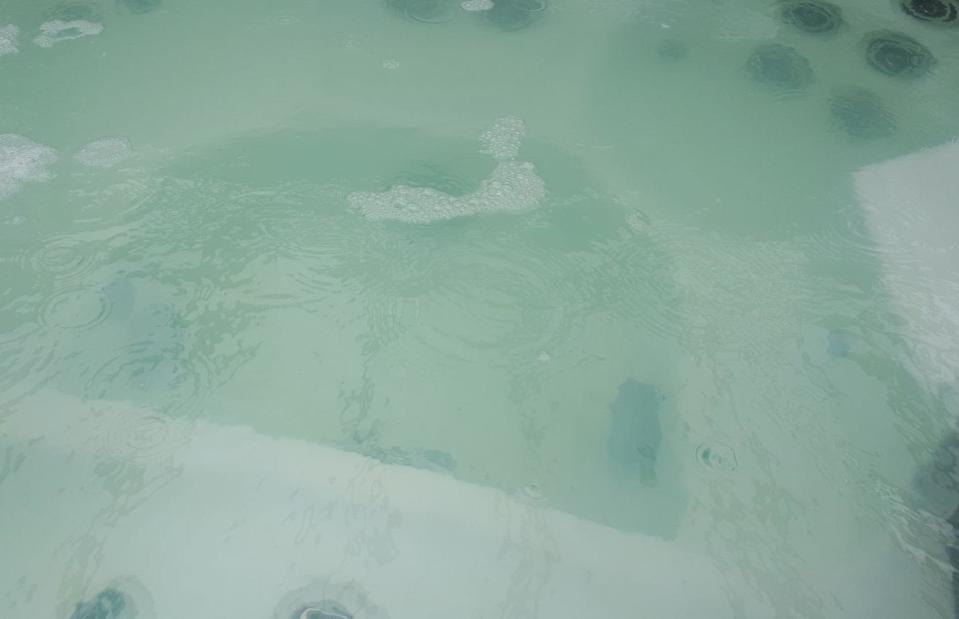
LuxurySpasDirect
Hot tubs seem like a luxury, but new owners may not take into account how much upkeep they require to keep them clean and sanitary. LuxurySpasDirect advises that "it is vital to maintain the correct PH and TA (Total Alkalinity) levels to ensure your sanitiser works correctly", while filters need to be regularly cleared of bathing waste. Also, too much chlorine can cause skin burns.
Electric shock by lawnmower
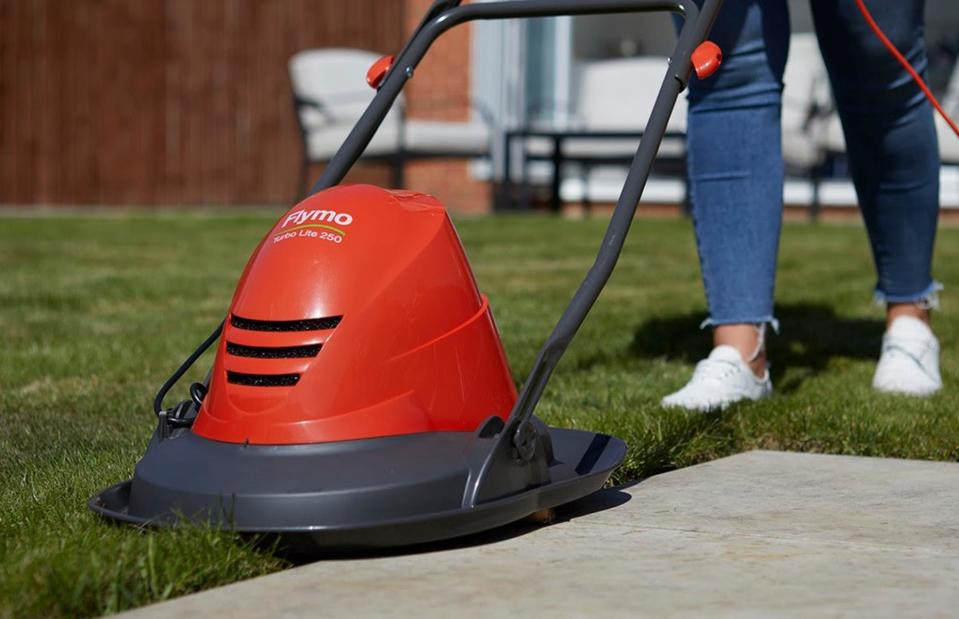
Flymo
If you're mowing your lawn in the rain, or if the grass is still wet, the tangled wires and faulty equipment could lead to electric shocks. According to The Witness, 55 year-old gardener Walter Mbatha was electrocuted while using an electric mower, dying instantly. Flymo offer tips to ensure you are safe while mowing your lawn.
Electric shocks from vacuum cleaners
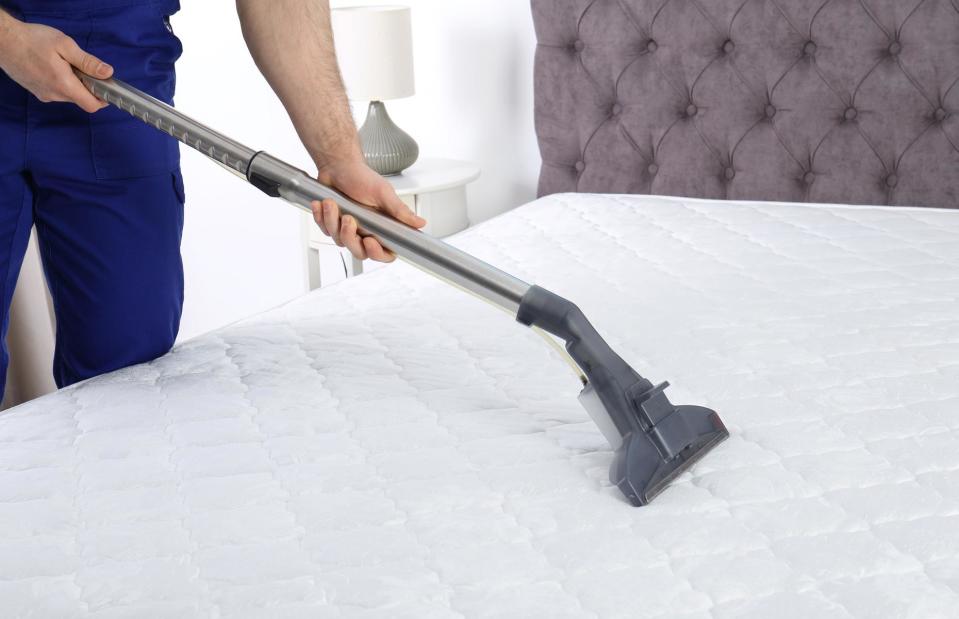
New Africa / Shutterstock
Queensland resident Leanne Hill's husband was electrocuted while vacuuming their house. Hill told That's Life magazine that, while investigations were ongoing, authorities believed the vacuum cleaner "was plugged-in and turned on at the wall when Ricki pulled off the nozzle attachment and touched a live part of the machine. The shock killed him instantly." Although this tragic incident was a freak accident, it is vital to unplug electrical cables at the wall when disassembling home appliances.
Cuts from slicing an avocado
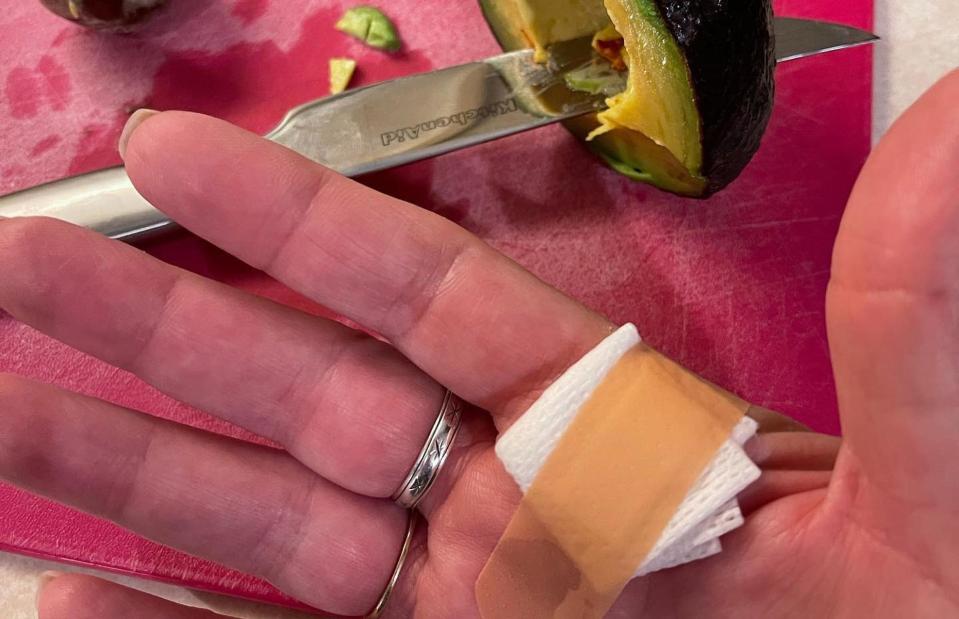
@barbill / Instagram
According to OSF Healthcare, the cutting of avocados send nearly 9,000 people in the US to the A&E every year. There is even a hashtag on social media called #avocadohand, if you're in search of gruesome photo evidence of results from unsafe cutting techniques. To avoid injury, refrain from holding the avocado in the palm of your hand when cutting. Instead, use a hard surface, or, even better, purchase a specialised cutting tool.
Unanchored furniture

U.S. Consumer Product Safety Commission
In 2017, Swedish furniture brand IKEA recalled its MALM range of chests and dressers in the US and Canada following eight separate incidents where children were killed by the furniture. In September 2022, ITV reported that a 21-year-old woman was crushed to death by a falling wardrobe in Liverpool. The Consumer Product Safety Commission in the US is aware of 234 fatalities resulting from clothing storage unit tip-overs since January 2000, including 199 child fatalities; the CPSC produced this safety video as a warning to consumers. To prevent it from tipping over, secure heavy furniture to a wall. The IKEA secure page offers full instructions.
Falling through ceilings
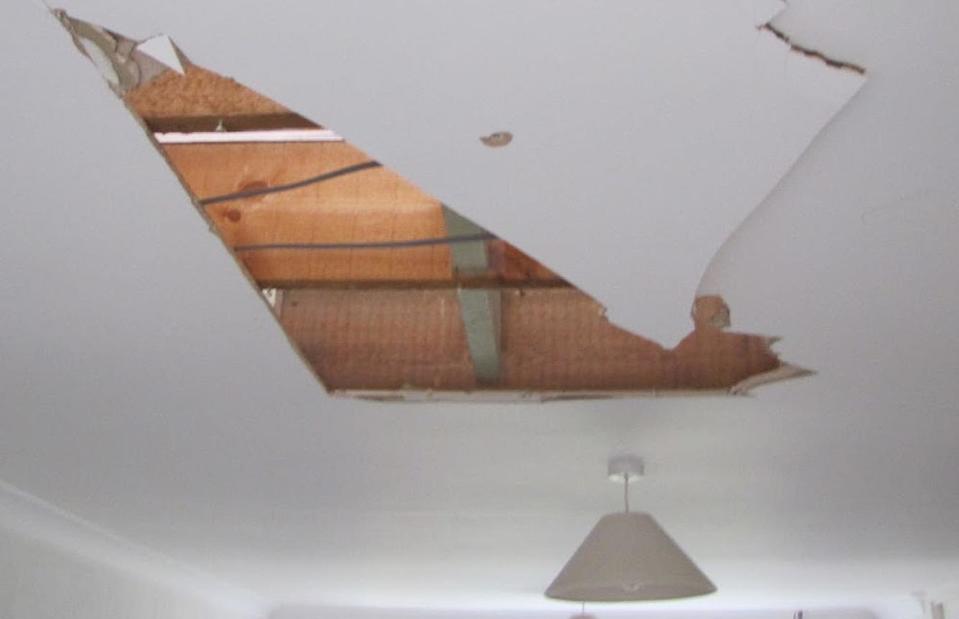
@youngproperties / Instagram
When the couple who run the @young_properties account were renovating their house, their builder came through the ceiling while homeowner Jo was on the sofa beneath him! Luckily, no one was harmed, but the moral of the story is to always stick to walking or leaning on the ceiling joists while in the loft or walking across unstable ceilings. They are the strongest part of the structure.
Pan fire burns
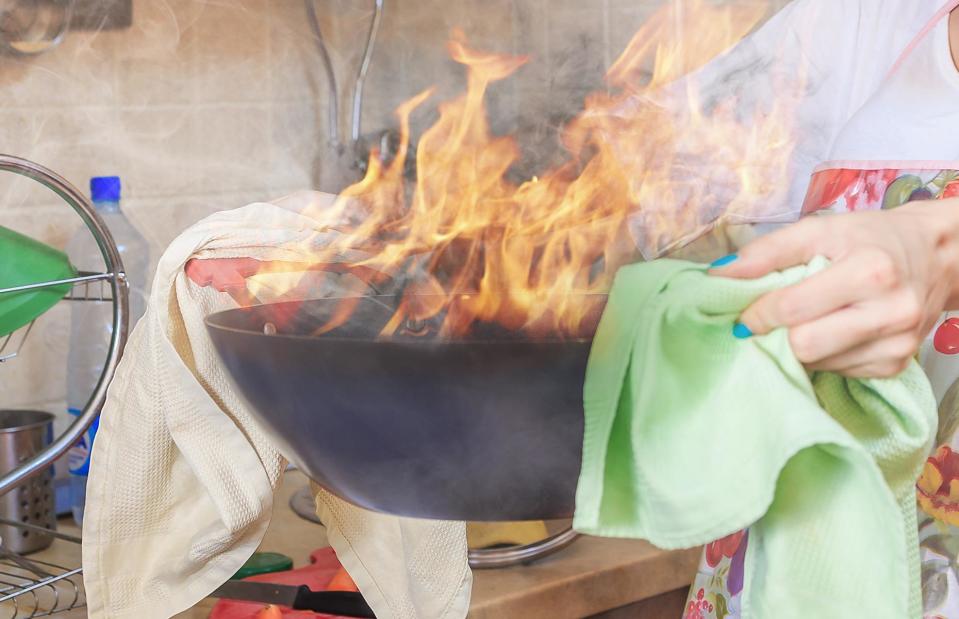
TeodorLazarev / Shutterstock
UK Fire Services Resources states that chip pan fires cause one-fifth of all accidental house fires in the UK each year. Even if you prefer oven-chips, cooking accidents can cause burns, smoke inhalation, or worse. London Fire Brigade advises that those experiencing a pan fire should 1) resist the instinct to tackle the fire themselves, or to move the pan; 2) never throw water over a fire, as it could create a fireball; 3) turn off the heat (but only if it's safe to do so, and 4) leave the room, close the door, shout a warning to others then call the emergency services.
Burns from a cooker or oven
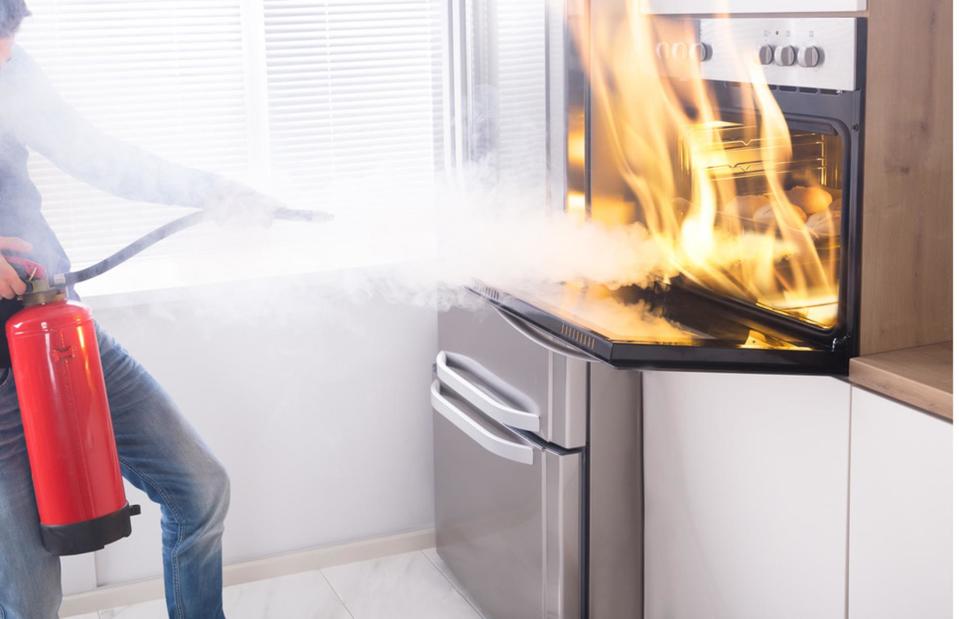
Andrey_Popov / Shutterstock
Cookers and ovens are the appliances homeowners are most likely claim on their home insurance. A Confused.com study suggests they are responsible for 111,426 accidents in the last decade. Jessica Willock, home insurance expert at Confused.com, writes: "Ensuring your appliances are used when it’s safe to do so, as well as kept in a good working condition, is important...they can be expensive to replace and misuse can cause damage to the home, resulting in a claim." Make sure your oven or cooker is free from excess grease, check plugs and sockets for damage, become familiar with your appliance’s features, use the correct equipment, and never leave your cooker unattended.
Burns from an open fire
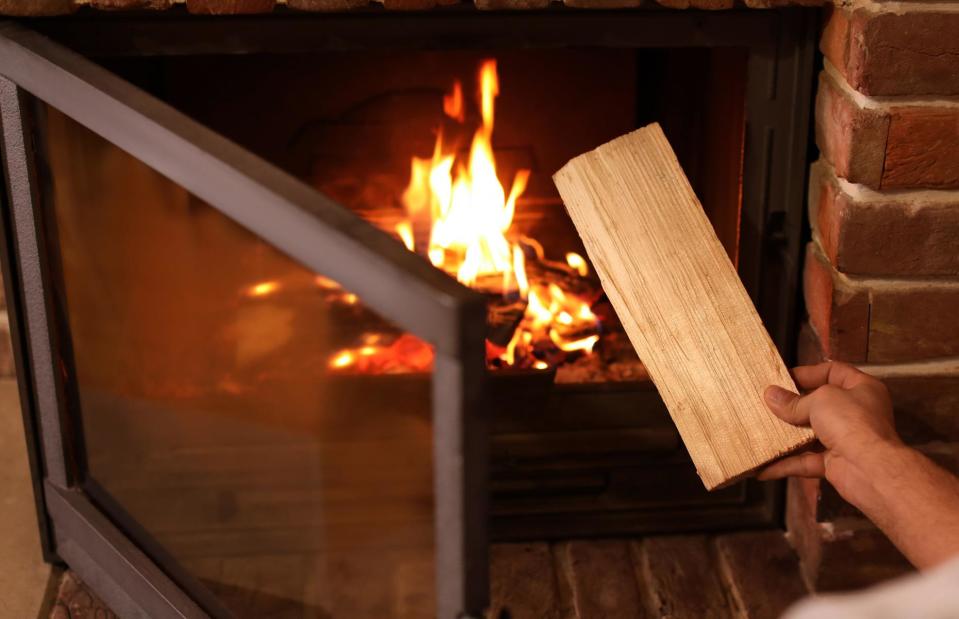
New Africa / Shutterstock
There is nothing more toasty on a winter's night than snuggling up in front of an open fire. But even when stoves and chimneys are correctly installed and maintained, burning the wrong fuel (like wood with a high moisture content) can increase risk of fire and injury. Andy Manson, Managing Director of NFU Mutual Risk Management Services Ltd, explains: "It can be tempting to pick up wood from the garden or when you’re out and about, but if you’re not sure of the quality...you can’t be sure of the fire hazards or health risks it could cause when burned. Also avoid using liquid fuels or accelerants on your fire or stove, and don’t place paper or rubbish in the fire when it’s burning."
Hot plate scolds
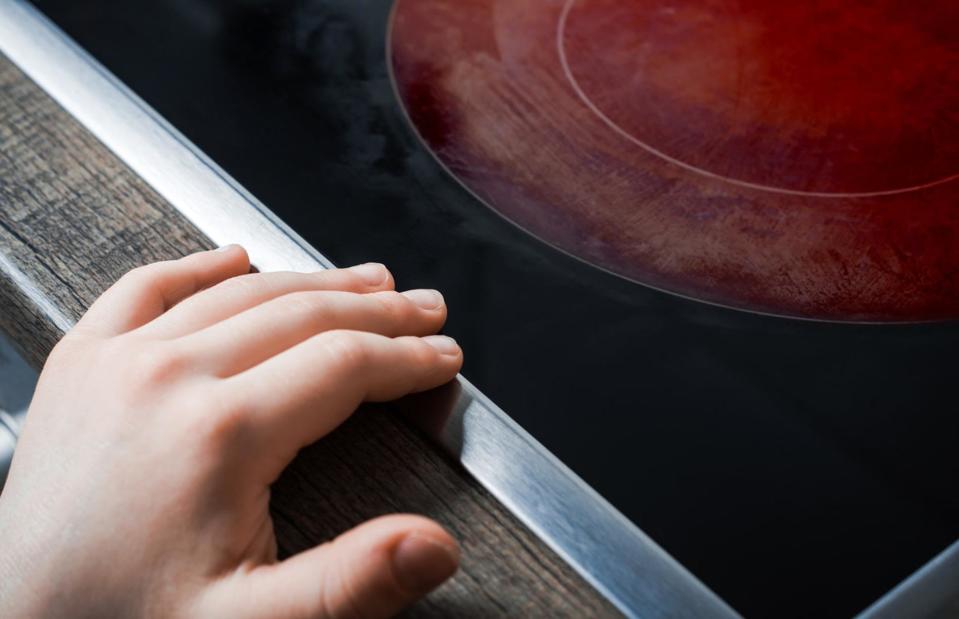
Devenorr / Shutterstock
Although induction cooker tops are generally safer than open flame gas hobs with easy-to-turn knobs, they are still extremely hot to touch post-cooking and can cause nasty burns. To treat a burn or scald, the NHS advises cooling the burn with cool water for at least 20-30 minutes. Do not use ice, iced water, creams or greasy substances like butter. Cover the burn by placing a layer of clean cling-film over it.
Asbestos poisoning
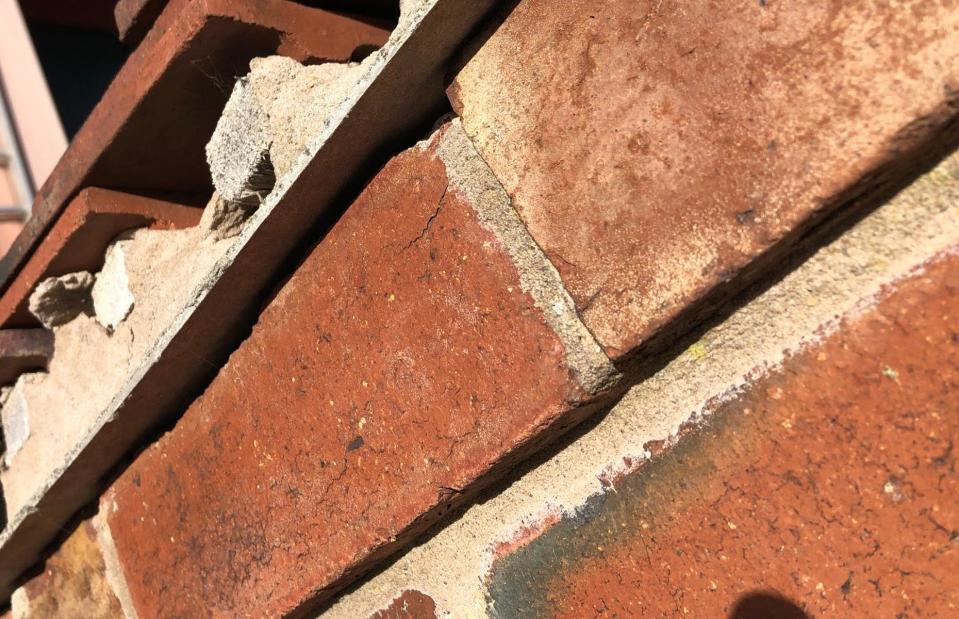
R B Asbestos
The Health and Safety Executive states Asbestos may be found in any residential building built or refurbished in the UK before 2000. When materials containing asbestos are disturbed or damaged, fibres are released into the air which, when inhaled, can cause serious diseases. If you are renovating your home and you come across a potential asbestos health risk hiding in your home, stop work immediately and contact a specially trained contractor to remove it.
Injury from window fall
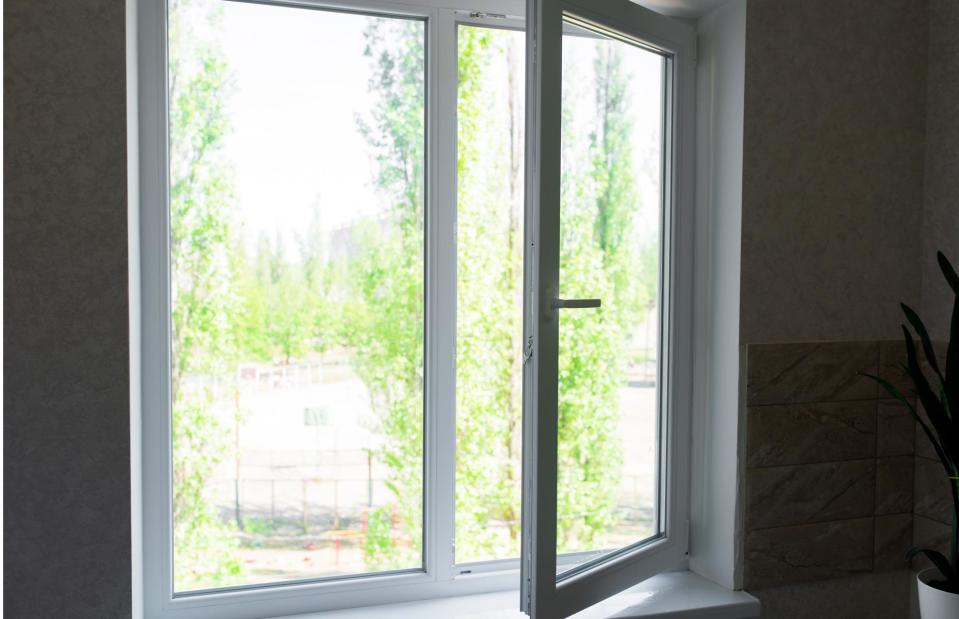
Clerik82 / Shutterstock
Rock-star Eric Clapton's son tragically passed away in 1991 when he fell from an open apartment window. Unfortunately, however, this accident isn't as unique as it sounds. RoSPA states that one child under 5 is admitted to a UK hospital every day after falling from a window. Always keep windows closed and locked when not in use, and never leave young children unattended by a window.
Scolds from hot baths
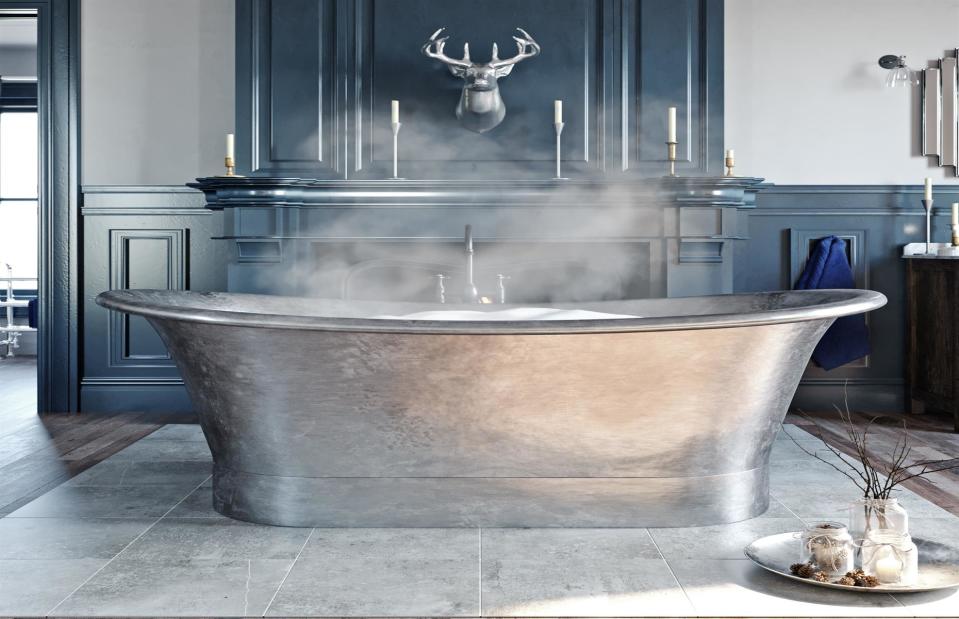
Victoria Plum
A statement bath is one of the best luxury bathroom ideas, but filling it with water that is too hot can lead to trouble. According to the Child Accident Prevention Trust, a baby’s skin is 15 times thinner than an adult’s, so hot water can pose a real danger. To make sure bath water is a suitable temperature for children's delicate skin, Babycentre.co.uk advises always starting with cold water and adding hot water, and swishing the water around while filling the bath to disperse heat. You can use a thermometer to ensure the liquid is not more than 38 degrees celsius, or test the water with your elbow rather than your hand, as the skin on your elbow has more heat receptors.
Candle burns
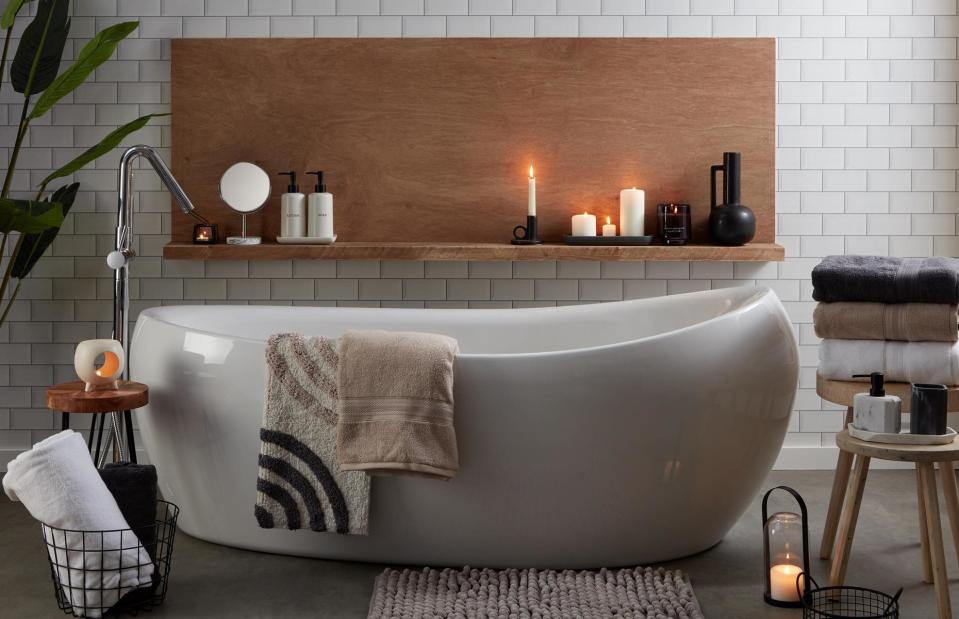
B&M Stores
Candles bring tranquillity to a room, but the naked flame is also a potential fire hazard if not carefully monitored. 8,200 home fires are started by candles each year according to the National Fire Protection Association. The National Candle Association advises these basic candle safety rules: 1) Never leave a burning candle unattended. 2) Never burn a candle on or near anything that might catch fire. 3) Keep candles out of the reach of children and pets.
Ladder falls
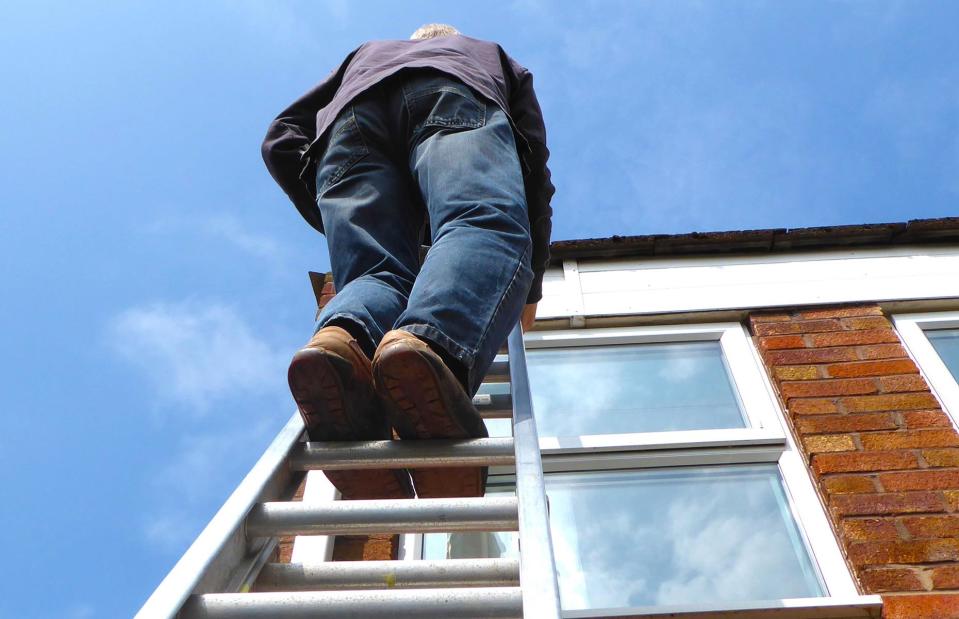
Myjobquote
It may be funny when comedy actors clown about with one, but one must be well-versed in ladder safety before ascending the steps, otherwise injury or fatality may occur. Thomas Goodman of Myjobquote.co.uk says: 1) Check the ladder for damages. 2) Set up in a safe place. 3) Never lean while on a ladder. 4) Climb down carefully. 5) Never use a ladder alone. 6) Keep your hands free. 7) Invest in a ladder strap. 8) Use the 1:4 rule – the base of the ladder should be one metre away from the structure for every four metres of height.
Lead poisoning
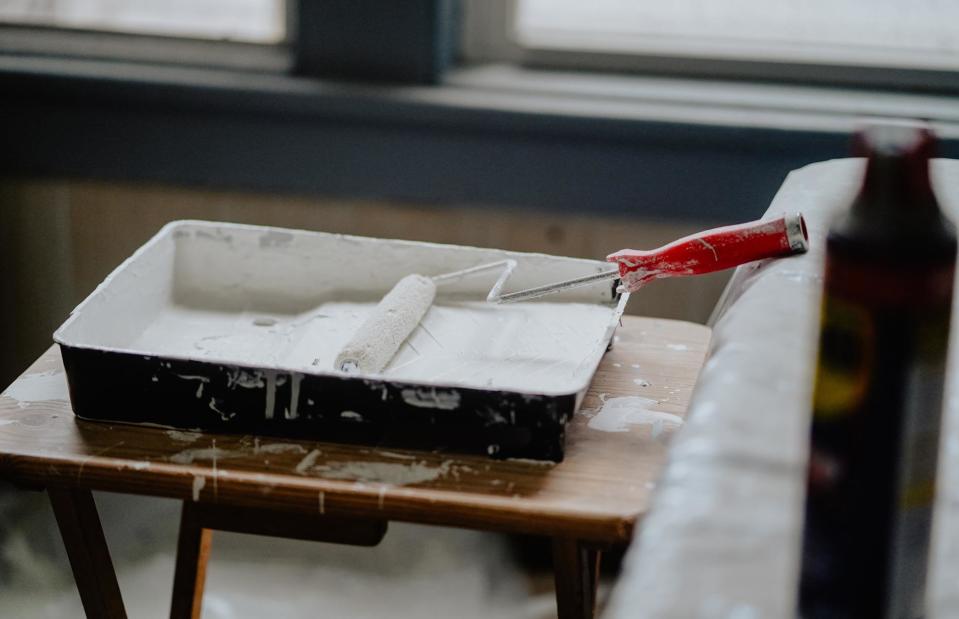
Karl Solano / Unsplash
Almost one million people die every year due to due lead poisoning, according to the World Health Organization (WHO). Over 80 countries now have legally binding controls to limit the production, import and sale of lead paints, but the prevalence of older buildings means lead poisoning is still a problem in the UK and US. The NHS states that a main potential lead poising risk is drinking tap water that has passed through lead pipes. For information, visit DWQR.scot.
Drowning in pools
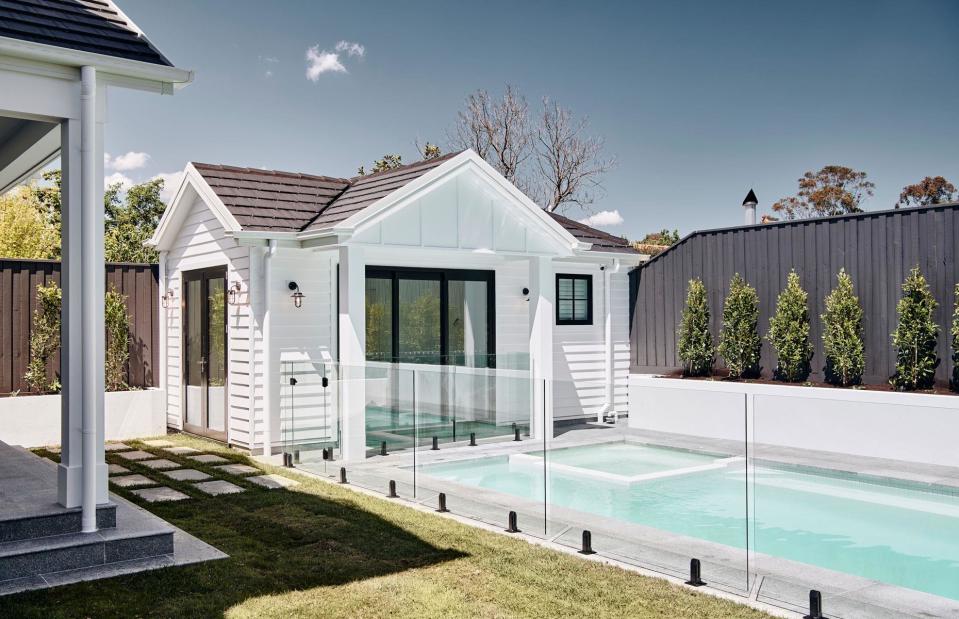
Norsu Interiors
From homes with stunning swimming pools to budget-friendly, metal-framed special buys, back yard pools promise hours of fun during the summer months. But with al fresco water play comes huge responsibility. Drowning can happen fast and is the leading cause of death among children aged 1-4 in the US according to the Centers for Disease Control and Prevention (CDC), as well as 5-to-19-year-olds (according to the Children's Safety Network CSN). To ensure your pool is a safe environment, educate your children, take turns water-watching at all times, install a fence guard and keep the pool covered when not in use.
Home gym injuries
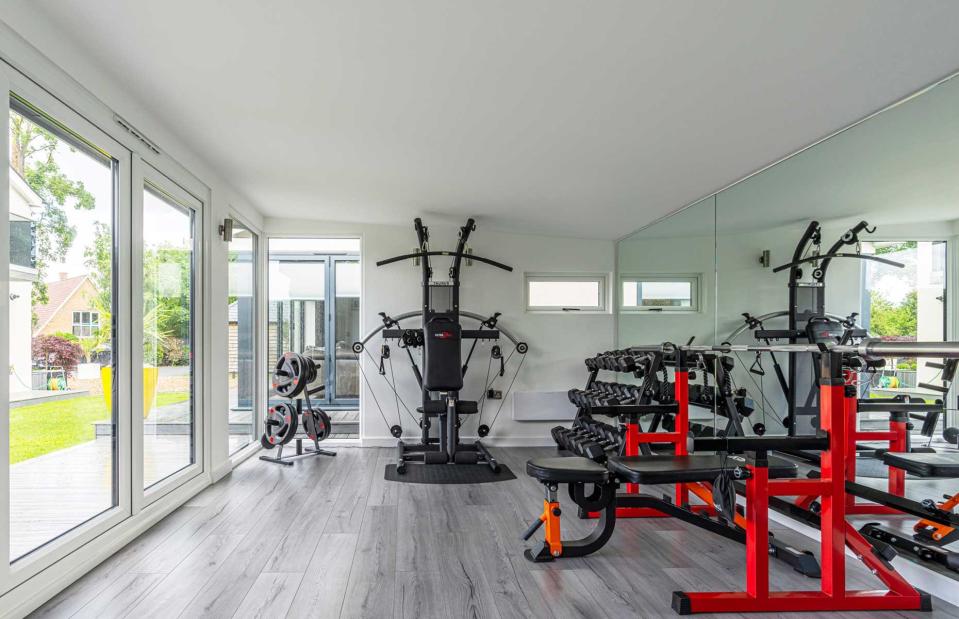
Green Retreats
During the pandemic, home-gym exercise injuries surged. But key findings from MedicareAdvantage indicated that ER visits increased by 48% from 2019-2020, and treadmills and exercise bikes were the exercise equipment most associated with home accidents. Brett Durney, co-Founder of FitnessLab suggests that users "ensure that a professional installs your equipment and that a maintenance plan is put into place". Also, listen to your body when exercising.
Poisoning pets

Ulrika Merk / Shutterstock
Hardy houseplants will purify the air and add a little life to your home. But buying varieties that are toxic to animals can deliver tragic results, especially if they are placed within easy reach of our furry friends. Whenever you buy a new plant, double-check on the label or online if it is toxic to pets. If you really can't do without the new and stylish living accessory, make sure it is displayed out of reach of your animals.
Food poisoning from out of date food
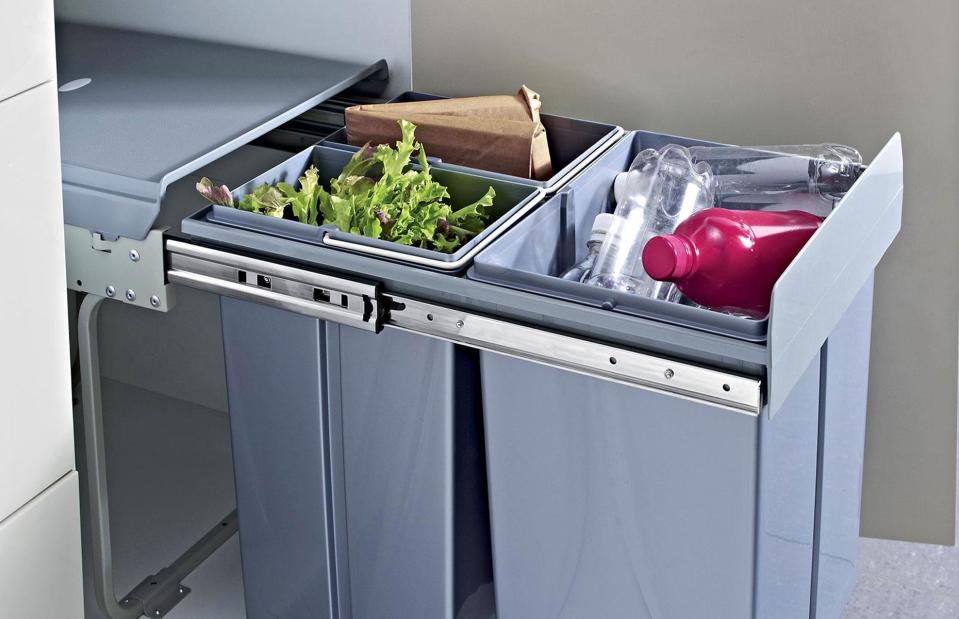
Haffe
The Food Standards Agency has recently released new findings that some people are taking risks in food safety because of the cost of living crisis. Data shows that 32% of participants reported that they had eaten food past its use-by date at least once in the last month, to reduce energy bills and save money. The FSA advises keeping your fridge on at the right temperature to make food go further. Check the FSA website for information on best-before dates.
Strangulation from blind cables
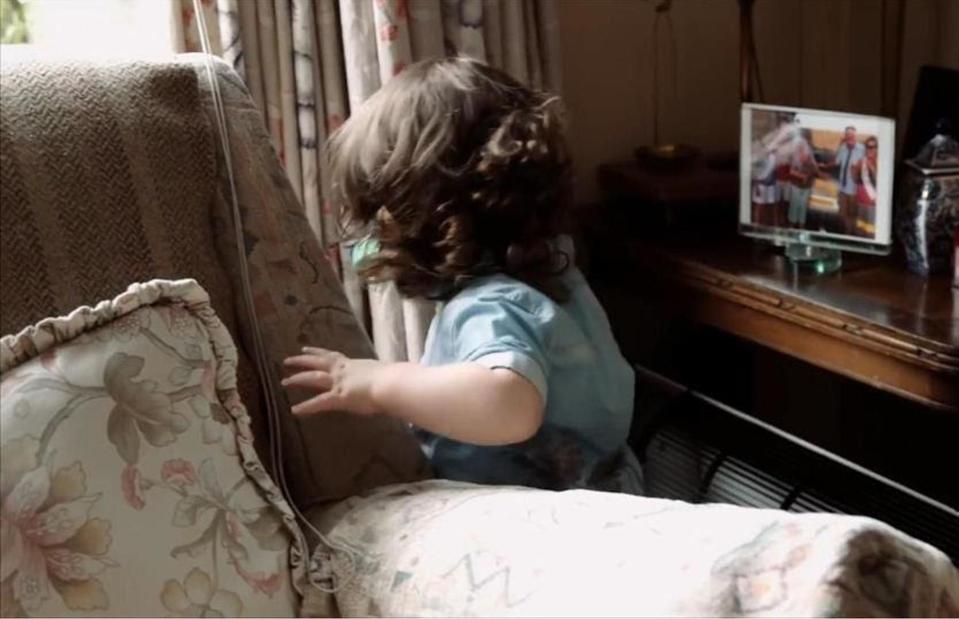
Nidirect
Looped blind cords and chains can strangle children and young people. RoSPA has found that most accidental deaths involving blind cords happen in the bedroom and occur in children aged between 16 and 36 months. Thankfully, a safety standard introduced in 2014 means that new blinds must either be safe by design or be supplied with the appropriate safety device. Never forget to install the included cleat or hook. Hillarys Blinds recommend fitting them at a minimum height of 1.5m above the ground.
Falling down the stairs
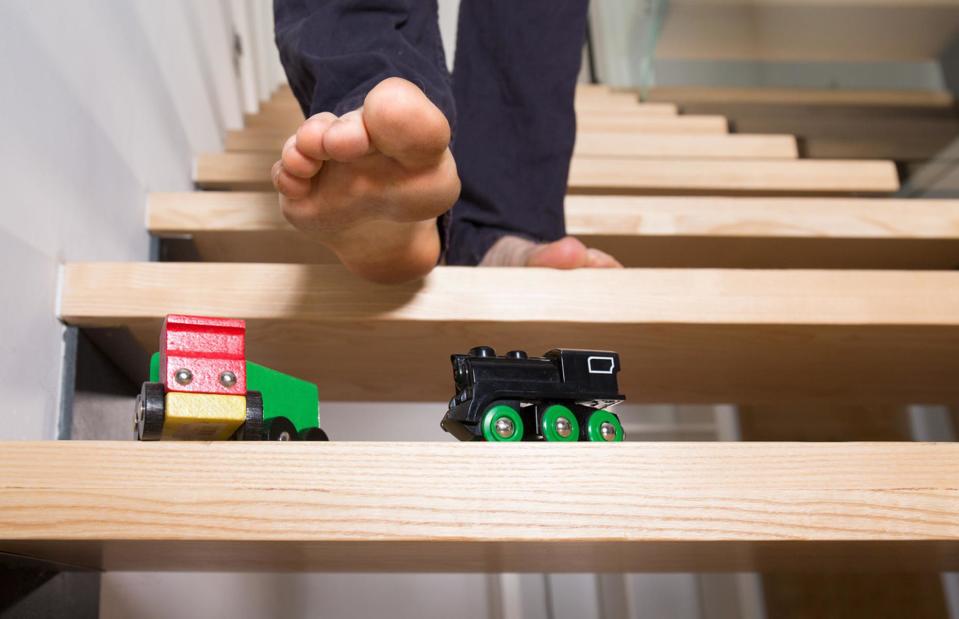
Ground Picture / Shutterstock
Scarlett O'Hara memorably fell down the stairs in Gone With The Wind, while Meryl Streep dramatically tumbled down what seemed like a never-ending staircase in Death Becomes Her, and we've lost count of how many times those villains Harry and Marv fall down the stairs in Home Alone. But in reality staircase accidents are no joke. The National Safety Council states that each year there are 12,000 stairway accident deaths. Keep staircases clear and well-lit at all times, and install a handrail where possible.
Poisoning from batteries
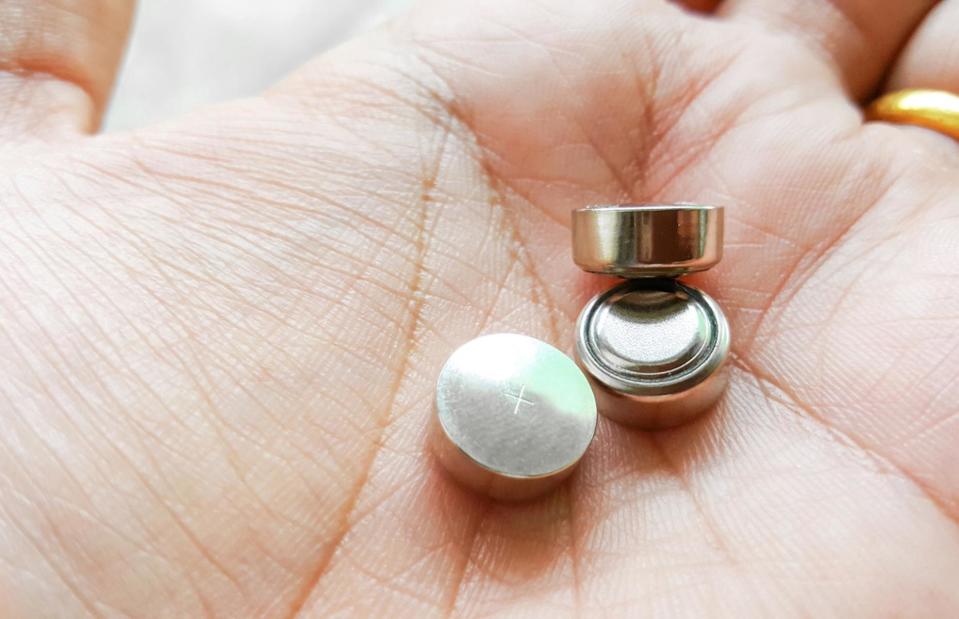
popular business / Shutterstock
Button batteries – also known as LR44 batteries, button cells or coin batteries – are extremely dangerous if swallowed, yet are commonplace around our homes, providing energy for toys, remote controls and other small electronic devices. A sad real-life story published on RoSPA describes how a Stoke-on-Trent mum Stacy-Marie Nicklin lost her daughter Harper-Lee in a button battery incident. RoSPA advises checking that all toys have lockable battery compartments and to be extra vigilant with other items that may contain small round batteries. Visit RoSPA for more information.
Poisoning from chemicals
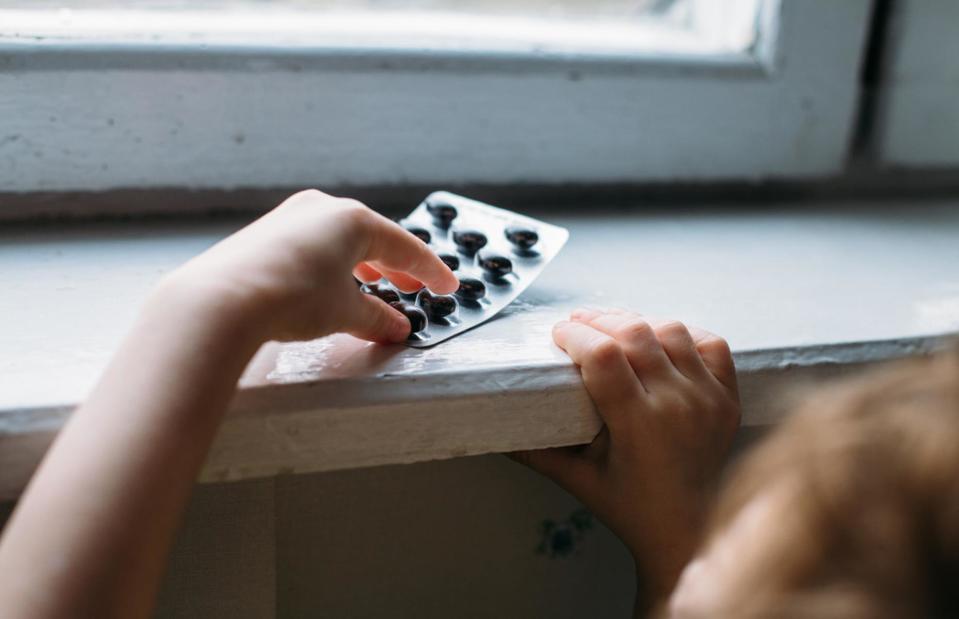
Ternavskaia Olga Alibec / Shutterstock
MedlinePlus reports that every year many children are brought to A&E because they took medicine by accident. A lot of medicine is made to look and taste like sweets and candy, and so is tempting. Be sure to put away medicine safely after every use and put a child-proof lock on any cabinets with medicine stored inside.
Cuts from smashed glass tables
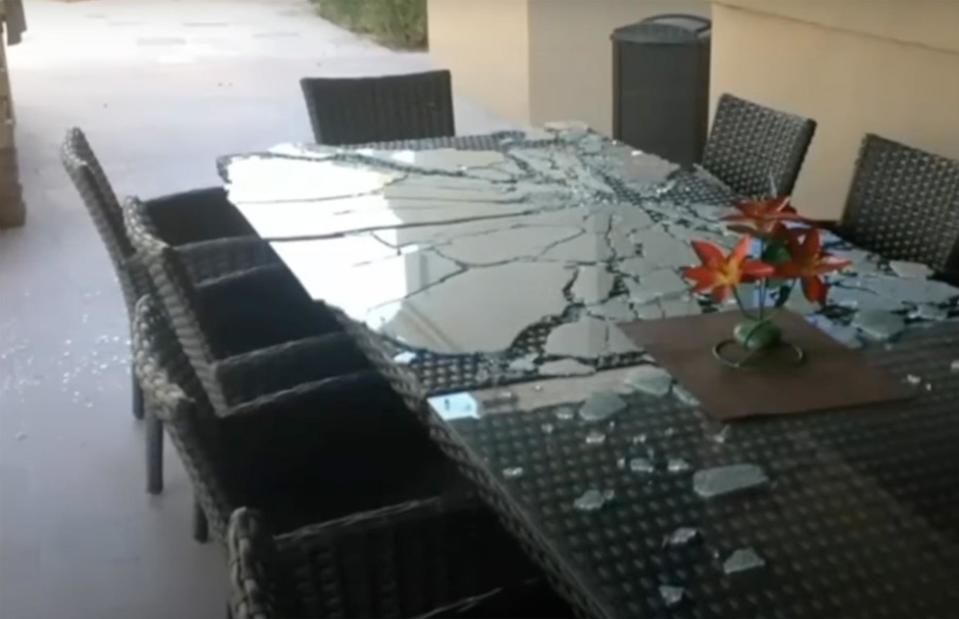
CBS / YouTube
Scientists at Rutgers University found that more than 2.5 million injuries involving glass tables are reported every year. Most incidents occurred when the person fell onto glass tables, often breaking through. However, a Scottsdale resident in Arizona US told CBS News that he is lucky his family escaped serious injury after his glass table exploded. The Consumer Product Safety Commission said it had received 400 complaints from 2007-2017. IKEA, who have received complaints about broken tables in the past, explained that "over time small knocks and fractures can affect the durability of tempered glass". So always inspect a glass table regularly, especially if it's second-hand.
Illness due to poor quality homes
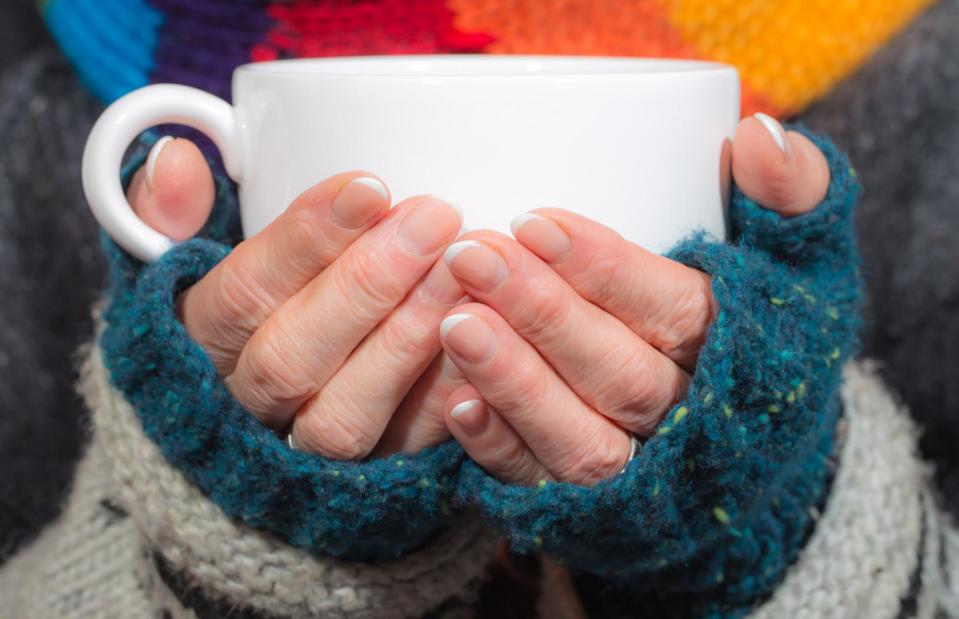
Rainer Fuhrmann / Shutterstock
With energy bills soaring, a new report from the Good Home Inquiry has found that excess winter deaths increased by almost 20% from winter 2018-19 to 2019-20. Meanwhile, 4 million homes don't meet basic standards for decency and are placing their residents at risk. David Orr CBE said: "With cold homes killing thousands each year... now is the time for an urgent and coordinated effort to bring our homes up to scratch, make them energy-efficient and cheap to heat, and ensure they are able to meet the needs of an ageing population."


